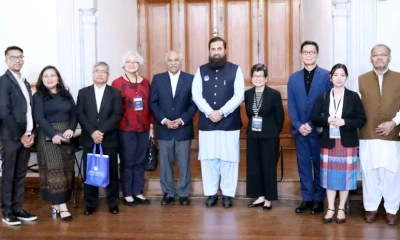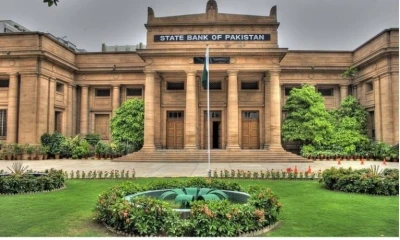Regional
How anxiety became a catchall for every unpleasant emotion
Here’s how to understand the difference between everyday anxiety and an anxiety disorder.

When you run a therapy practice called the Center for Anxiety, as David H. Rosmarin does, you encounter a breadth of anxiety-related experiences. Sometimes, after talking with new patients, Rosmarin will determine their distress may not be related — or solely related — to anxiety at all.
Because anxiety intersects with so many other aspects of mental health, like depression and substance abuse, Rosmarin says, many people are quick to attribute their emotional pain to anxiety alone. They may even mistake anxiety for something else entirely. He’s told patients they’re not anxious at all, but stressed. “I’ll say, sleep eight hours a night for the next two weeks,” he says. “Come back and tell me how you’re feeling. I’ve tried that trick many times with stressed-out patients, and they’re at 50 percent of their stress level two weeks later with no therapy at all.”
More Americans are seeking professional mental health treatment than ever before. Nearly a quarter of adults visited a psychologist, therapist, psychiatrist, or other mental health professional in 2022, compared to 13 percent who did so in 2004, according to a Gallup poll. No longer stigmatized or discussed in secret, mental health terms — and mental health-adjacent terms — have trickled out of the therapy room and into casual conversation. “Narcissism,” “gaslighting,” “and “boundaries” are just as readily discussed at brunch or online as in clinical settings. Self-diagnosis based on simplified videos and memes on social media can result in pathologizing seemingly mundane behaviors and thought patterns.
Normalization of mental health is undoubtedly positive: More people can feel empowered to seek care and to openly discuss their experiences. However, increased awareness has resulted in more people confusing “milder forms of distress as mental health problems,” according to one academic paper. Despite therapy’s wider cultural acceptance, we still don’t have a grasp on what we really feel. Without a nuanced vocabulary to describe these experiences, complex emotions are flattened with blanket terms. “We don’t have a sophisticated lexicon,” Rosmarin says. “We end up labeling everything as anxiety.” When we don’t accurately define our emotions, we don’t know how to properly address them. If we approach our feelings with curiosity, we can improve our emotional intelligence.
What is anxiety?
Anxiety is both a normal response as well as a pathological experience, says psychiatrist Tracey Marks. People often endure everyday levels of anxiety or nervousness before a first date or if they have to make a presentation at work. You might have physiological effects, like sweating, racing heartbeat, or butterflies in your stomach. Momentary anxiety can be functional, a signal to be on the lookout for potential danger or to prepare for that work presentation. After the nerve-wracking event is over, the feeling usually passes. In an increasingly anxiety-inducing world, where climate change, wars, and a contentious upcoming presidential election instill plenty of anxiety, “it’s normal for us to have some kind of distressing reaction to something that is threatening to us,” Marks says.
A sign of an anxiety disorder is when anxiety interferes with your daily life. If the thought of going to a social event elicits physical symptoms like vomiting and/or persistent worried thoughts of how others will perceive you, you may have social anxiety, Marks says. Avoiding people, missing work or school, a baseline level of fear (that may not be logical), and inability to relax are some of the signs of generalized anxiety disorder. “One of the characteristics of generalized anxiety,” she says, “is that you can worry about anything. You can worry about world peace.” Someone with debilitating anxiety might want to work with a therapist to better cope.
People may mistake anxiety for stress. Stress is when you have too many demands and not enough resources, like time or money to outsource some responsibilities, Rosmarin says. “Anxiety often happens in the context of an abundance of resources,” he says. You may be getting enough sleep, have a supportive partner, and a job you love, for instance, but still spiral over would-be worst-case scenarios that may never materialize. Even fear can be confused with anxiety. Fear is in response to a concrete threat, whereas anxiety is triggered by an amorphous or future risk.
The importance of emotional intelligence
The boundaries of anxiety are blurry and subjective, says Nick Haslam, a professor of psychology at the University of Melbourne, so it makes sense that lay people would label all of their upsetting experiences as “anxiety.” But we can stand to improve our emotional intelligence — the ability to accurately identify what we’re feeling, Haslam says. Because many don’t receive emotional education beyond primary school, says Rosmarin, we have a limited emotional vocabulary. Feeling “bad” is a significantly different experience from feeling “distressed,” “frustrated,” “jealous,” “overwhelmed,” or “anxious.”
An emotional binary of “good” and “bad” emotions actually makes matters more confusing. “You don’t understand how you should respond to what’s going on,” Haslam says, “whether you should flee or fight, whether you should bite your tongue.” People who struggle to put their emotions into words have more difficulty coping with complex feelings, Haslam says.
When we don’t have a deep knowledge of common human emotions, we may pathologize normal experiences. Feeling uncomfortable in a room of new people is incredibly common. It is not, however, social anxiety, Marks says. Online and social media content created by non-professionals may paint anxiety with broad strokes, leading viewers to self-diagnose as having an anxiety disorder. “Even if you do have anxiety, it doesn’t necessarily mean that you have an anxiety disorder,” says psychologist Juli Fraga. What’s often at the root of situational anxiety — like feeling anxious in social scenarios — may be relational trauma dating back to unhealthy social interactions during childhood, Fraga says.
What’s lost when every experience is “anxiety”
Labeling yourself as an anxious person, even if you do have a diagnosis, can make it more difficult to overcome your emotions. If anxiety is so baked into how you see yourself, you could use it as a crutch or an excuse to avoid social situations, new experiences, or other potentially enriching events. “As soon as you attribute some sort of noun label to yourself — I’m an anxious person or anxiety is who I am,” Haslam says, “people tend to infer that they’ve got something deep-seated and lasting and a reason not to engage with the world.”
Avoidance is generally the wrong way to address anxiety, Haslam says. Believing you have social anxiety, for example, may lead you to isolate, which only entrenches the anxiety. Avoidance may offer temporary relief, but doesn’t offer a long-term solution.
When we don’t have the appropriate vocabulary to describe our emotions, we lose the ability to effectively intervene, Rosmarin says. “Imagine going into a board meeting with a sophisticated company that has a lot of different projects,” he says, “and you have one word to describe anything negative that’s going on in any of those projects.” Determining whether we’re stressed or anxious greatly impacts how we move forward: It’s the difference between getting a good night’s sleep and moving your body (effective ways to manage stress) and working with a therapist to confront what makes you anxious.
How to get a little better at defining anxiety
Getting to the root of emotions takes some thought. When it comes to anxiety, Marks says to consider how much disruption it causes. Do you feel anxious in certain situations or does it significantly impair your ability to perform day-to-day tasks? For example, if you experience such intense, constant distress about the safety of your loved ones — even if there is no present threat to their safety — that it actually damages your relationships, you may feel inspired to seek professional help for your anxiety. If you have trouble sleeping and feel nervous during exam time, you may be stressed. “Maybe [try] exercising more, or making sure that you’re trying to get the best sleep you can,” Marks says, “things that you can do to help you cope better as these situations come.”
Whenever feelings of anxiety do arise, get curious about its causes, Fraga suggests. Think about what it is about parties that deters you from social gatherings. Maybe you don’t like talking to strangers. Again, ask yourself why. Perhaps you had an embarrassing rebuff in the past. Anxiety isn’t a truth-teller. Just because you had a negative previous experience doesn’t mean you’re doomed to repeat the same patterns or should feel afraid of repeating those patterns.
Rather than relying on labels to describe our emotions, we owe it to ourselves to use a vocabulary as vast and complex as our experiences. Accurately describing the causes of anxiety, how it physically manifests, and when and how often it occurs, allows us to pinpoint the exact form of support we need, too, whether it’s therapy or just talking to a loved one. That’s how we move forward.
It can be helpful to depersonalize anxiety. Try reminding yourself, “Yes, I’m anxious but that’s a temporary thing which I can do something about, and I’m actually pretty courageous to be able to deal with it,” Haslam says. “I’m not just a damaged individual.”
Pakistan
No peace in world without permanent peace in Gaza: PM
As he talked about Gaza, the audience in the hall responded with resounding applause.

Riyadh: Prime Minister Shehbaz Sharif Monday here said permanent peace in Gaza was imperative for achieving peace in the world. He was speaking at the plenary meeting of the special session of World Economic Forum on the theme of “Rejuvenating Growth”.
He said, “The world will not be in peace unless there is a permanent peace in Gaza.”
As he talked about Gaza, the audience in the hall responded with resounding applause.
He said the conflict in Ukraine brought to the world skyrocketing commodity prices and Pakistan could not import and procure vital raw materials for industry and agriculture.
No peace in world without permanent peace in Gaza: PM “On top of that inflation is breaking the back of developing countries,” he said adding coupled with that, Pakistan faced devastation in 2022 due to huge unimaginable floods.
The prime minister said, “Pakistan is one of those countries which has nothing to do with the reasons leading to climate change. Our contribution to emissions is not even fraction of one percent.”
Due to catastrophic floods in Pakistan, large swathes of land were submerged and millions of houses and animals were washed away and stagnant water brought water borne diseases all across the country, he continued. He said his government spent Rs 100 billion from scarce resources for relief and rehabilitation of flood affectees.
“We are grateful to the friendly countries including Saudi Arabia, Gulf countries, United Kingdom, the United States and many other countries for their support at a difficult time.” Pakistan’s economy suffered losses of 30 billion dollars because of floods and then it approached international entities in Geneva and other places and had to borrow loans at expensive rates due to the natural disaster which was not its fault, he mentioned.
He said his father and his brothers were sons of a poor farmer in undivided India and they migrated to Lahore, Pakistan at the time of partition.
With the sheer dint of hard work, in 1965 his father and family raised the largest steel engineering company in Pakistan but it was nationalized on January 2, 1972, he said adding his family stood up and accepted the challenge and in next 18 months set up six new small factories to avoid further nationalization.
He said global north and south were dependent on each other and had to work together to face the present challenges.
The prime minister said after taking over rein of the country early this year, he was determined to put things in order.
Talking about issues facing Pakistan, he said the power sector was in shambles due to massive electricity theft and an elitist culture was doling out to those who did not deserve it. He told that for the first time in the history of the country after getting credible input from agencies he removed high level officers who were not functioning well and had grey record.
“Our revenue sector is in tatters and what we receive annually in revenue, we lose four times due to leakages in the system. Unless we plug loopholes we will not recover from our problems in revenue collection,” he explained. He said there were also problems of inflation and debt trap which was a “death trap”.
He said, “I acknowledge from the core of my heart the support of Saudi leadership for Pakistan for overcoming economic challenges. A friend in need is a friend indeed.”
He appreciated UK’s Department for International Development for its outstanding support for Pakistan in sectors of health and education in the past. He said his government was going for deep rooted structural reforms and meaningful austerity. Pakistan had a very young population – millions of boys and girls – which was not only a challenge but also a great opportunity.
“Youth is our biggest asset and we have to provide them will modern tools and technology including education in information technology and artificial intelligence and vocational training so that they can become self earners and establish small and medium size businesses and contribute in the nation building efforts in Pakistan and Saudi Arabia.”
Talking about his goals to achieve economic progress, he said his government would promote agriculture through modern technology and by providing best seeds and fertilizers to farmers. “A huge task is ahead of us and we have to go for higher exports and incentivize our exporters and utilize our mineral resources and fertile land,” he added.
He reiterated that Pakistan could achieve its rightful place in the comity of nations with hard work and untiring efforts.
Regional
Senators demand probe into social media propaganda on taxing solar consumers
PPPP Senator Palmas Mohammad Zai Khan says If there is any idea to tax solar power consuming households then it’s tantamount to a conspiracy against the sitting government and an wise move that will further break the backbone of the masses already battered by price hike and poor economic situation.

Islamabad: The Pakistan Peoples Party Parliamentarians (PPPP) Senators on Monday demanded the Upper House of the Parliament to direct for a probe into social media propaganda on government’s alleged intention to tax solar power consumers.
PPPP Senator Palmas Mohammad Zai Khan while taking to the floor on point of order demanded the House to take note of the issue as social media hearsays led to huge outcry in the public already burdened by skyrocketing inflation and rise in gas and electricity tariffs.
Senator Khan said, “If there is any idea to tax solar power consuming households then it’s tantamount to a conspiracy against the sitting government and an wise move that will further break the backbone of the masses already battered by price hike and poor economic situation.”
She said the newspapers had given wide coverage to the story that forced the power division to issue an informal statement brushing aside all the claims levelled in the social media’s misleading information.
Senator Palwasha Khan announced at the floor of the House that if there was going to be any such decision then it would be resisted from the floor.
“Pakistan has produced some 7,000 megawatts of electricity from renewable energy sources in just eight months that gives huge impetus to shift over cheaper energy sources,” she said.
Chipping in her discussion, PPPP Parliamentary leader in the Senate, Senator Sherry Rehman said the issue surfaced on Saturday weekend that was against the state and country’s ambitions and also the vision of Prime Minister Shehbaz Sharif. Senator Rehman said she took to X formerly Twitter, to condemn the development and wrote three posts demanding the Prime Minister to take notice of the matter.
She said it was not only the solar power units that were going to be charged but also the net metering system was going to be altered that would completely break this industry.
“There have been many calls and messages from green energy investing companies, diplomats and foreign missions investing in green energy initiatives in the country.
They asked me that should we take our investment back or close our endeavours for renewables rollout,” Senator Rehman said. “The Power Ministry has furnished an informal statement rejecting all such allegations whereas it is pertinent that this should not have happened,” she said.
Meanwhile, Parliamentary leader of the Pakistan Muslim League-Nawaz (PML-N) Senator, Irfan Siddiqui termed the Pakistan Tehreek-e-Insaf (PTI) Senator Aoun Abbas Bappi accusations of legislation intended to provide extension in the age of the judges as speculations and forbade him to avoid making such concocted statements that may instigate a controversy on media.
He said he would endorse Senator Bappi’s stance for ensuring safeguard of honourable judges prestige and honour and all such efforts to tarnish their reputation would be condemned from his party.
-

 Pakistan 22 hours ago
Pakistan 22 hours agoRain, hail expected in Punjab, KP today
-

 Entertainment 16 hours ago
Entertainment 16 hours agoWedding pictures, videos of ASP Shehrbano go viral
-

 Regional 2 days ago
Regional 2 days agoHow JoJo Siwa’s “rebrand” got so messy
-

 Sports 2 days ago
Sports 2 days agoSania Mirza offers glimpse of week through Instagram post
-

 Sports 2 days ago
Sports 2 days agoFifth T20I: New Zealand elect to bowl first against Pakistan
-

 Pakistan 1 day ago
Pakistan 1 day agoRamon Magsaysay Award Foundation delegation meets Punjab governor
-

 Pakistan 1 day ago
Pakistan 1 day agoFM Dar appointed as Deputy Prime Minister
-

 Sports 1 day ago
Sports 1 day agoGillespie to coach Pakistan in red-ball cricket, Kirsten in white-ball cricket





















